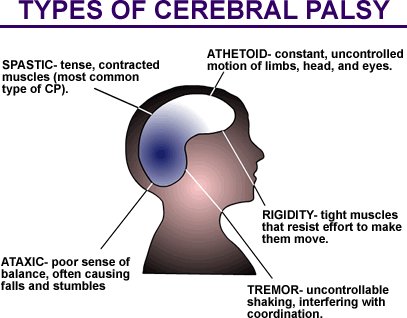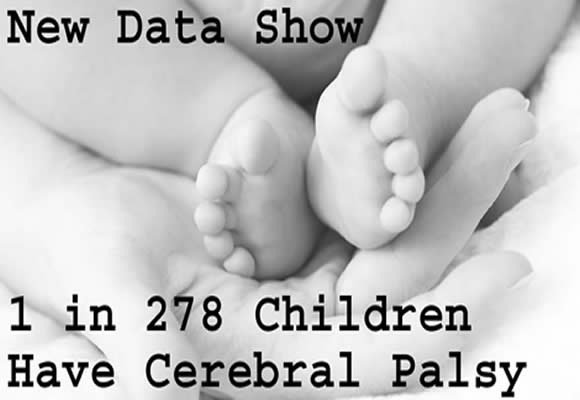|
Cerebral Palsy - A Part Of Our Family's NormalcyEric Barksdale has cerebral palsy after having suffered oxegen deprivation at birth. Vanessa Barksdale, his devoted mother has two sons (including Eric) and is also his nurse, carer and number one advocate. I did a telephone interview with Vanessa who I found to be a well spring of information. Read on! 
Lydia: Thank you for allowing me to speak to you today about Eric. Mrs. Barksdale: You are welcome Lydia: What was life like before the effects of Cerebral Palsy? Mrs Barksdale: I was a career woman - working in a bank and loving it. Lydia: And how long did you continue working after Eric was born? Mrs Barksdale: Several years. However I found it difficult to find a daycare that would meet our needs (especially as we had just moved to a new state) and this almost dictated the need for me to stay at home. My husband told me back then, that I had retired but was not aware or it. I guess he had foresight that I didn't recognize! Lydia: So how old is Eric? Mrs. Barksdale: He just turned 19 years old Lydia: When was he diagnosed? Mrs. Barksdale: Just after birth Lydia: Do we know what caused the Cerebral Palsy? Mrs. Barksdale: When I was pregnant with Eric, I started having contractions and went to the doctor’s office. He told me that I was only three centimeters dilated and that I should go home. Having been home, the labor began to progress fairly rapidly and became too much pain to bear, we went to the hospital where I was hooked onto the fetal monitor. At that point they realized that he was in distress and ordered an emergency C-section. It was three minutes from incision to delivery - and then they rushed him away. My husband caught a glimpse of him as they went and apparently, he was blue. He had his first seizure that night. We later found out that Eric had swallowed his meconium (the first fecal excretion of a newborn child) and it had moved into his lungs, shutting off any oxygen to his brain and resulting in severe brain damage.

Lydia: You must have been devastated when the diagnosis came through as brain damage and cerebral palsy. How did you react initially? Mrs. Barksdale: When I came around, the first thing I asked was whether he was alive. I guess I had known that something was wrong. Lydia: And what is Eric’s condition at this time? Mrs. Barksdale: Obviously, there is the Cerebral Palsy, and as a result came the severe epilepsy and cortical blindness. Lydia: What is cortical blindness? This is what the layman would call “good lens, bad camera”. In short it means that even though his eyes are fine, there is a problem in his visual cortex (the part of his brain that controls his vision). Lydia: Eric is the first of your two children. Did his diagnoses affect your marriage in any way? Mrs. Barksdale: We were pretty bonded and this situation just made us pull closer together! Each of us fell into our roles and we do them well. I have been told by my doctor, however that the divorce rate among parents of cerebral palsy children are as high as 80%. We have been fortunate enough to be able to defy those odds. Lydia: I researched and read that the highest occurrence of divorce is especially between the ages of one and four years (and then post high school) and yes, the rates vary from eighty to eighty-five percent. Mrs. Barksdale: That's about right. Lydia: What is Eric's 'mental age'? Mrs. Barksdale: Although Eric is nineteen he has the physical and mental level of six to twelve month baby. He does not walk, talk or eat by mouth. The prognosis is that it will never happen. He wears diapers and takes feedings of Ensure through a G-Tube. He knows his family, but reacts to us on a very infantile level. Lydia: What is your standard day like with Eric? Mrs. Barksdale: Well, there are two standard days. One with help and one without help - this is usually on a Sunday. A day with no help means that ‘it’s all on me’ and that includes lifting, bathing, shaving, changing, etc. - from morning to night. A day with help allows me to run errands, meet up with friends or just have a break or a rest. However, I am always on the clock and cognizant of his needs. I often call back to see how he is doing, especially if we have a new or temporary carer. Lydia: So when are you able to let your hair down? Mrs. Barksdale: In truth, everything has to be planned and typically, anything above four hours is very hard to organize. Like I said, I am constantly on the clock. Lydia: You mentioned that you lift Eric by yourself. How much does he weigh? Mrs. Barksdale: Eric weighs 126lbs and I have muscles to prove it! Obviously, my back tells me when I do it these days, especially as I happen to have developed spondolysthesis in my teenage years. While the doctors are certain that lifting Eric did not cause the pain in my back, consistently lifting 126lbs has definitely exasperated it. Lydia: Eric’s brother Andrew (thankfully) does not have Cerebral Palsy, but how does he react to his brother? Does he miss out on your attention in any way? Mrs. Barksdale: When Andrew was younger, he was very possessive of Eric. He would not let other children push his wheelchair and was often heard saying to others that “he’s mine”. As time passed, he would say things like “I love my brother dearly, but I wish I had a sibling to play with”. At this point, it is more about knowing what the doctors are saying and understanding the situation better - at times I have to stop him from over questioning the doctor! Does he miss out on my attention? I don’t think so. We have a close relationship Lydia: How aware do you think Eric is of his surroundings? Mrs. Barksdale: That’s one of those questions that I’m not sure we will ever know the true answer to. We are certain that he knows when each of us (his family members enters his room) because an observer once said that we all have different ways of greeting or touching him. In recent years, it seems he doesn’t like being around crowds and will tend to kick up a fuss. He certainly doesn’t like dark spaces because any time we go to the movies, he will groan and make loud noises until I remove from the theater. Yet when he gets to the brightly lit foyer, he is as happy as a lark! Eric also responds to humor - he loves to laugh! Lydia: Is Eric still in school? Mrs. Barksdale: Yes, the special education system can usually keep him until he is twenty-one years old.
Mrs. Barksdale: A variety of things such as outdoor trips, activities that help him with his Tactile Resistance, different types of therapies, and so many other activities that strive to promote his well being, despite him having cerebral palsy. Lydia: Healthcare is very high on the political agenda these days. How have you found the attitude of the medical community towards Eric and his Cerebral Palsy? Mrs Barksdale: We have lived in New Jersey, North Carolina, California and now Georgia. The medical communities' attitudes in these states have varied. So far, NC seemed to be the most proactive in caring for people with cerebral palsy. They didn't dwell on what someone couldn't do, but searched for ways to enhance or utilize the skills displayed by the handicapped person. Lydia: And what advice do you have for parents who have children with Cerebral Palsy? Mrs Barksdale: Based on our experiences, my advice to all parents is to be your child's warrior. No one knows your child better than you. Find a doctor who listens to your concerns and does not minimize your opinion. Don't allow your child to be discounted because of their disability. Research your child's condition including their meds and side effects. Grasp a clear understanding of your insurance benefits. Question! Question! Question! Don't assume your annual insurance benefits guide will outline everything needed by a special needs family. Ask your insurer if you can have a case manager. These people are available. They eliminate the need to reiterate your child's medical history every time you reach a new 1-800 customer service representative. Lydia: Thank you so much for your time. You are an awesome resource for information. Mrs. Barksdale: You are welcome. Thank you for doing this.
|